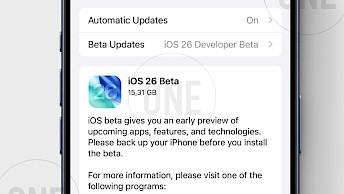How to Build A Mobile eLearning App That'll Thrive

Thinking of making a mobile eLearning app? It's exciting, right? But also a bit daunting. You know these apps are changing the game in education. The question is, how do you make yours shine? How do you grab learners' attention and help them learn? This guide is here for you. I'll walk you through building a tool that's more than just useful. We'll be speaking about creating one that is engaging, easy to use, and really teaches.
The Essential Role of Professional Development Services
To begin with, creating a standout eLearning instrument isn't just about great ideas. It's also about expert execution. This is where professional development services like https://www.velvetech.com/ios-app-development/ come into play. Their expertise is indispensable in bringing your vision to life. Here’s why consulting them is a game-changer:
- Expertise
Development services bring a wealth of technical knowledge. They know the nuts and bolts of app development inside out. From coding to UI/UX design, they have the skills to ensure your app is not only functional but also sleek and user-friendly.
- Experience
These professionals understand how people learn digitally. They can guide you in choosing the right content formats, interactive elements, and learning pathways.
- Insight
Development services keep up with the latest trends in eLearning. They can advise you on what’s currently working in the market, what learners expect, and how to stay ahead of the curve.
- Avoiding Common Pitfalls
They've seen what works and what doesn’t. Their experience can save you from common mistakes, from technical glitches to poor user experience design. This can save you time, money, and a lot of headaches.
- Scalability
A good development service will not only help you launch your product but also ensure it’s scalable. They can set up the architecture in a way that supports growth and ongoing maintenance.
In short, while you bring the educational vision, development services bring the technical mastery. Together, you can create an eLearning app that truly makes a difference in the digital learning landscape.
10 Steps to Build a Successful eLearning App
Even if you're leaning on professional development services — which is a smart move — having a grasp of the creation process is invaluable. It equips you with the knowledge to collaborate effectively and make informed decisions. In this section, we’ll break down the key steps in developing a successful eLearning app.

1. Understand Your Audience
Get to know your learners like close friends. What challenges do they face in learning? What times of day are they likely to engage with the tool? Digging into these details helps tailor software that feels like it’s made just for them. It’s not only about meeting their educational needs but also fitting into their lifestyle and preferences.
2. Define Clear Learning Objectives
Think about what success looks like in your app. Are you helping learners master a new language, or are you offering quick-bite knowledge for busy professionals? Set specific, measurable goals. This clarity shapes everything from the tool’s structure to the type of quizzes and feedback you’ll provide.
3. Choose the Right Content Format
Mix and match content types for a dynamic learning experience. Imagine blending short videos, infographics, and interactive simulations. Catering to different learning styles keeps users engaged and reinforces learning through varied approaches.
4. Focus on User Experience (UX) Design
Your app’s design should feel as natural as a conversation. Think about the learner’s journey through the product. How easy is it to find a course or track progress? A seamless UX design ensures learners spend less time figuring out the app and more time actually learning.
5. Incorporate Gamification Elements
Make learning an adventure. Use elements like storytelling, challenges, and rewards to make education feel like a game. This approach can transform mundane topics into exciting quests, keeping learners hooked and eager for more.
6. Ensure Accessibility
Design your software so everyone can learn. This includes learners with visual, auditory, or motor impairments. Features like voice commands, screen readers, and easy-to-tap buttons ensure that your app teaches everyone.
7. Test Your App Thoroughly
Testing isn’t just a technical step. It’s about real human feedback. Get your app into the hands of actual learners. Their insights can reveal hidden bugs or usability issues and provide genuine reactions to your content’s effectiveness.
8. Plan for Regular Content Updates
Learning never stops, and neither should your content. Plan for regular updates — whether it’s adding new courses or updating existing ones with fresh examples. This keeps the learning experience current and dynamic.
9. Develop a Strong Marketing Strategy
Market your product as a learning companion. Use real stories and testimonials in your marketing. Highlight how your product has helped others or can solve specific learning challenges. Authentic marketing resonates more with potential users than just listing features.
10. Analyze and Adapt Based on User Feedback
See feedback as a goldmine of insights. Actively seek it out and listen to what learners are saying. Their suggestions can guide your product’s evolution, making it better with each update. Remember, only software that evolves based on user feedback stays relevant.
5 Must-Have Features for a Standout eLearning App

When crafting an eLearning tool that really connects with users, some features are the difference between an app that's just okay and one that users love and learn from daily. Let's look at what these features are!
- Learning That Feels Like It's Just for You
Imagine software that gets to know you. It suggests courses based on what you like and how you learn best. It's like a personal coach, tailoring the learning journey to fit you perfectly. This kind of customization can turn learning into a joy, not a chore.
- Make It Fun, Make It Stick
Why read about something when you can dive in and do it? We’re talking about learning by doing — with interactive content like games, simulations, or even virtual reality adventures. This isn't just fun. It helps you remember what you learn way better.
- A Community That Learns Together
Learning alone can get lonely. So, how about an app where you can chat, share, and solve problems with others? It’s like being part of a club where everyone's there to learn and help each other out.
- Insights That Inspire:
Think of software that not only tracks your progress but also cheers you on. It gives you a nudge when you’re doing great or a bit of extra help when you’re stuck. This kind of smart feedback can keep you motivated and on track.
- Learn Anytime, Anywhere — No Wi-Fi Needed
In a perfect world, you’d always have great internet. But what if you don’t? That’s where offline access comes in. Download your lessons and learn wherever you are, even if you’re off the grid.
Building a mobile eLearning tool is an exciting venture that has the power to educate and inspire. By focusing on your audience, creating engaging content, and prioritizing user experience, your product can truly thrive. Stay learner-focused, be adaptable, and watch your app make a meaningful impact.





